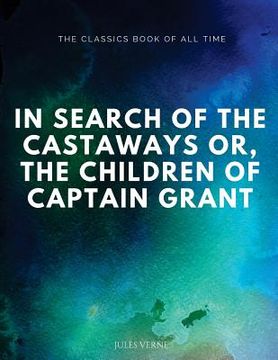Jules Gabriel Verne, conocido en los países hispanohablantes como Julio Verne (Nantes, 8 de febrero de 1828-Amiens, 24 de marzo de 1905), fue un escritor, dramaturgo y poeta francés, célebre por sus novelas de aventuras y por su profunda influencia en el género literario de la ciencia ficción.
Nacido en una familia burguesa, estudió para continuar los pasos de su padre, Pierre Verne, como abogado pero muy joven decidió abandonar ese camino para dedicarse a la literatura. Su colaboración con el editor Pierre-Jules Hetzel dio como fruto la creación de Viajes extraordinarios, una popular serie de novelas de aventuras escrupulosamente documentadas y visionarias entre las que se incluían las famosas De la Tierra a la Luna (1865), Veinte mil leguas de viaje submarino (1870), La vuelta al mundo en ochenta días (1872) o La isla misteriosa (1874). Ya antes había publicado Cinco semanas en globo (1863) y Viaje al centro de la Tierra (1864).
Es uno de los escritores más importantes de Francia y de toda Europa gracias a la evidente influencia de sus libros en la literatura vanguardista y el surrealismo, y desde 1979 es el segundo autor más traducido en el mundo, después de Agatha Christie. Se le considera, junto a H. G. Wells, uno de los «padres de la ciencia ficción». Fue condecorado con la Legión de Honor en 1892 por sus aportes a la educación y a la ciencia.
Ver más
Ver menos

